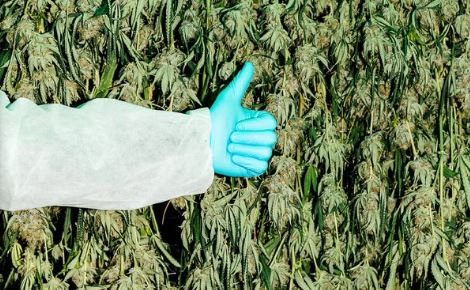You are here
Home 🌿 Medical Cannabis News 🌿 Canada’s grand cannabis experiment has set scientists free 🌿Canada’s grand cannabis experiment has set scientists free

When Canada fully legalized recreational cannabis on Oct. 17, the internet giddily reimagined the CN Tower in Toronto peeking out from a thick haze and swapped the flag’s red maple leaf for its jagged-edged green cousin. Outsiders might titter about an entire populace turning into potheads, but legalization means some of the country’s brightest can now turn their minds to pot, writes Amanda Siebert from the New York Times.
As the first G-7 nation to slacken cannabis laws, Canada has bolted to the front lines of the plant’s methodical scrutiny and investigation. No longer at risk of censure or lacking access to specimens, researchers can transcend the narrow parameters of scientific study once considered acceptable, namely, clinical research, to explore social, biological, genetic and agricultural questions. From botanists to phytochemists, microbiologists to epidemiologists, scientists of all sorts are free to openly pursue a greater quantity and quality of cannabis science than ever before.
Ninety-five years of prohibition has made for a rather brief encyclopedia entry, meaning what we do know mainly comes from anecdotal observation and short-term studies. But Canadian laboratories aren’t starting from scratch. It was Canada, in 2001, that became the first country to sanction the medical use of marijuana. It was a Canadian team, in 2011, that published the first sequence of the cannabis genome. Yet these landmark contributions, and the array of peer-reviewed studies that were spurred, rarely strayed past lines of inquiry that ran parallel with social norms.
Research lurched forward with the early legal steps, offering sick and suffering Canadians a new option to manage chronic pain, treat symptoms of PTSD and boost their overall quality of life. It dwindled under Prime Minister Stephen Harper, a Conservative who slashed health and drug policy budgets and slammed cannabis as “infinitely worse” than tobacco (experts say it’s the other way around). Research multiplied again in 2014, when commercial growers got clearance to supply mail-order medical marijuana to Canadian patients, commodification that simultaneously energized corporate interests.
Canada’s brand-new legislation, the Cannabis Act, replaces a restrictive system that treated researchers like would-be drug dealers. Scientists intending to cultivate their own plants can now simply apply for a specific class of license rather than toil for an exemption from the retrograde Controlled Drugs and Substances Act, which, among other demands, required criminal record checks.
420 Intel is Your Source for Marijuana News
420 Intel Canada is your leading news source for the Canadian cannabis industry. Get the latest updates on Canadian cannabis stocks and developments on how Canada continues to be a major player in the worldwide recreational and medical cannabis industry.
420 Intel Canada is the Canadian Industry news outlet that will keep you updated on how these Canadian developments in recreational and medical marijuana will impact the country and the world. Our commitment is to bring you the most important cannabis news stories from across Canada every day of the week.
Marijuana industry news is a constant endeavor with new developments each day. For marijuana news across the True North, 420 Intel Canada promises to bring you quality, Canadian, cannabis industry news.
You can get 420 Intel news delivered directly to your inbox by signing up for our daily marijuana news, ensuring you’re always kept up to date on the ever-changing cannabis industry. To stay even better informed about marijuana legalization news follow us on Twitter, Facebook and LinkedIn.




